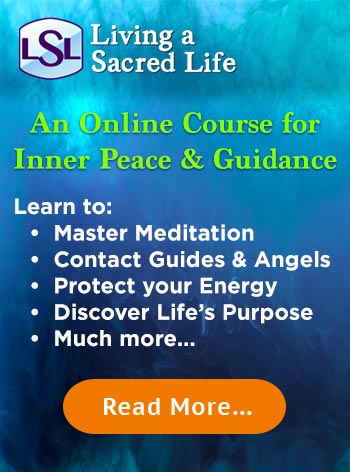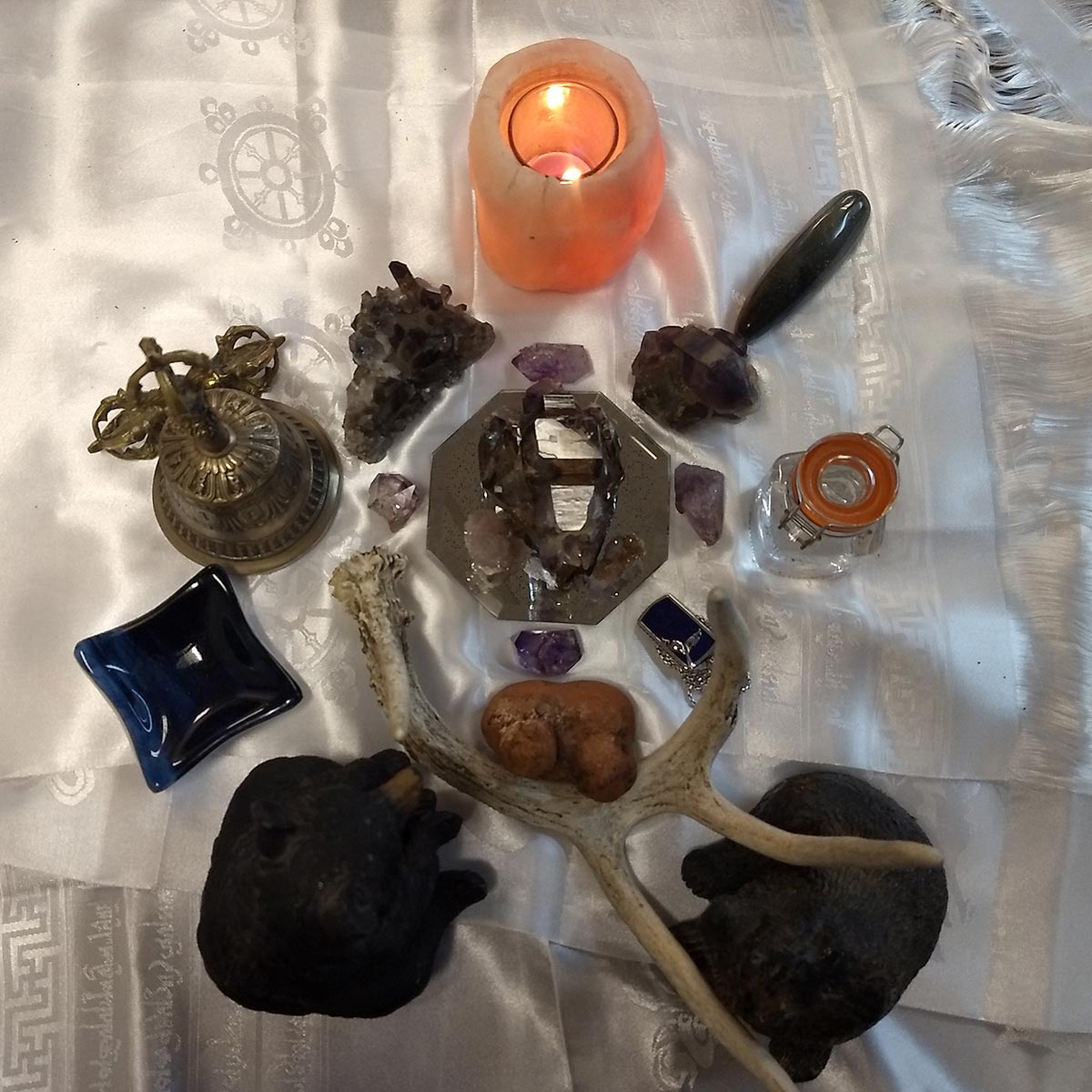Energy and empathy are two concepts intrinsically linked to our daily life, often misunderstood or misused, and yet, they hold an immense power over our emotional and physical health. They are both the invisible threads that connect us to others and the world around us. And just like any other aspect of our life, it is crucial to understand them deeply and to manage them effectively.
Contents
The concept of energy, in the context we are referring to, is not something you can measure with a meter or gauge. It’s the invisible force that surrounds each of us, influencing how we feel, how we interact with others, and how we move about our day. This energy can be positive, negative, or neutral, and it constantly shifts based on our thoughts, feelings, and experiences. In a way, our energy is a reflection of our inner state mirrored to the outside world.
“Energy is the currency of the universe. When you ‘pay’ attention to something, you buy an experience. So when you allow your consciousness to focus on someone or something that annoys you, you feed it your energy, and it reciprocates the experience of being annoyed.”
~Lynne McTaggart
On the other hand, empathy is the ability to understand and share the feelings of others. It’s the emotional bridge that links us to others, allowing us to feel what they are feeling, to see the world from their perspective. Empathy can be a powerful tool for building deep and meaningful connections, but it can also be draining if not managed properly.
“Empathy is really the opposite of spiritual meanness. It’s the capacity to understand that every war is both won and lost. And that someone else’s pain is as meaningful as your own.”
~Barbara Kingsolver
Understanding the difference between energy and empathy, and how they interact, is the first step toward achieving emotional balance and health. They are not separate entities, but interconnected aspects of our emotional ecosystem. Mismanaged energy can lead to emotional drain, while uncontrolled empathy can lead to emotional overload.
- Energy is the potential force that we radiate and absorb every day.
- Empathy is the emotional link that connects us to others.
As we delve deeper into these concepts, we will explore how to harness the power of energy and empathy, without allowing them to drain or overwhelm us. We will discuss strategies for maintaining clean energy and emotional hygiene, essential for our overall well-being and happiness.
Introduction: Energy and Empathy in Everyday Life
As we tread the path of our daily lives, we encounter myriad experiences that impact us on multiple levels. Two such essential concepts that we often confront in our day-to-day life, yet seldom fully grasp, are energy and empathy. It is important to understand that these aren’t mere abstract ideas; rather, they have profound implications on our well-being, our relationships, and the way we perceive the world around us. Just as we need clean air and water to maintain our physical health, we require clean energy and emotion hygiene to sustain our emotional and psychological health.
Understanding Energy
When I talk about energy, I’m not referring to the kind of energy that powers your car or lights up your home, but the subtle, intangible form of energy that emanates from and surrounds each one of us. This energy is the essence of our being, a reflection of our mood, thoughts, emotions, and overall state of mind. It is what makes us feel ‘drained’ after spending time with a chronically negative person or ‘energized’ in the company of someone positive and enthusiastic. We are constantly exchanging this energy with our environment and the people around us, often without even realizing it.
Exploring Empathy
Empathy, on the other hand, is our ability to understand and share the feelings of others. It is like a bridge that connects us to other people, allowing us to feel what they are feeling – their joys, their sorrow, their fears, and their hopes. Empathy is not just about sympathizing with somebody’s plight; it’s about putting ourselves in their shoes and experiencing their emotions as if they were our own. Yet, empathy, like a bridge, can become a channel for the energy – positive or negative – of others to affect us.
The Interconnectedness of Energy and Empathy
Energy and empathy are not isolated concepts, but are deeply interconnected. Our energy influences our capacity for empathy and vice versa. When our energy is clean and positive, we are better equipped to empathize with others without becoming overwhelmed by their emotions. Conversely, when our empathy is balanced and grounded, it allows us to interact with others’ energy without being adversely affected by it.
Maintaining Clean Energy and Emotion Hygiene
Having understood the relation and impact of energy and empathy, it becomes imperative that we maintain clean energy and practice emotion hygiene. Clean energy can be cultivated by adopting a positive outlook, practicing mindfulness, and engaging in activities that uplift our spirit. Emotion hygiene, akin to personal hygiene, involves taking care of our emotional health by managing our feelings, dealing with negative emotions appropriately, and ensuring that we don’t get unduly influenced by the emotions of others.
As we strive to maintain clean energy and emotion hygiene, we not only enhance our well-being but also contribute to creating a more positive and empathetic world.
Energy: What is it and How Does it Affect Us?
When I refer to energy in this context (and it’s important to note that I’m not talking about physical or kinetic energy that you might have learned about in science class), I’m talking about the vibrational frequency or biofield that every person, place, and thing emits. It’s a subtle force often felt but not seen, existing in a realm that our five senses may fail to capture, yet its effects are indisputable.
Many cultures acknowledge this energy as it runs through the body-mind system. It can be called “chi”, “qi”, “prana”, “ether”, “ki”, “mana”, “orgone”, etc. It can run through subtle channels in the body, emanate from larger or smaller energy centers, and substantiate a field surrounding the body.
Think of it this way: when you walk into a room where an argument has just taken place, you might feel an uncomfortable tension – that’s energy. When you are around someone who is extremely positive and enthusiastic, you may find yourself feeling uplifted and brighter – that, too, is energy. It’s an invisible exchange that influences our emotions, thoughts, and overall state of being.
Energy is not only an external force but also an internal one. It’s a reflection of our thoughts, emotions, and physical health. When you’re feeling happy and healthy, you radiate a high vibrational energy that can lift others. On the contrary, when you’re feeling low or unwell, your energy tends to be lower, which can bring others down (even if unintentionally).
How Does Energy Affect Us?
Energy affects us on multiple levels, and understanding this is crucial for our emotional and physical wellbeing. For one, our personal energy can attract or repel others. An individual with positive, high-vibrational energy can draw people towards them, while someone with negative, low-vibrational energy can push people away. This phenomenon is often referred to as ‘vibing’ or ‘resonating’ with someone.
Secondly, energy can influence our overall mood and mental health. Continuous exposure to negative energy (whether it comes from our environment or our own thoughts and emotions) can lead to feelings of stress, anxiety, and even depression. On the other hand, surrounding ourselves with positive energy can enhance our emotional wellbeing, promoting feelings of happiness, peace, and contentment.
Lastly, energy can affect our physical health. According to numerous studies in the field of psychoneuroimmunology (the study of how our mind influences our health), there is a significant correlation between our energy (emotional state) and our physical health. Long-term exposure to negative energy can weaken our immune system and make us more susceptible to illness, whereas maintaining a positive energy can boost our immunity and our overall enhance health.
Therefore, it’s crucial to pay attention to the energy we are surrounded by and the energy we ourselves are emitting. Being conscious of our energy and striving to maintain a positive vibration can profoundly impact our relationships, emotional wellbeing, and physical health.
Remember: energy is contagious. We absorb the energy around us, and likewise, we contribute to the energy of our surroundings. It’s like a constant exchange, a give-and-take that affects us on a profound level.
The Science of Energy: Understanding Vibrations and Frequencies
Let’s embark on a fascinating journey into the realm of energy, specifically the science behind it. My belief, shaped by years of exploration and research, is that understanding the core principles of energy, vibrations, and frequencies can significantly enhance our ability to navigate through life, positively impacting our relationships, productivity, and overall well-being.
The concept of energy is both simple and complex. In its simplest form, energy is the ability to do work or bring about change. This definition, however, barely scratches the surface of the profound significance of energy in our existence. Energy is all around us and within us; it is a fundamental constituent of the universe (the energy within atoms, the energy from the sun, the energy in waves, and so on). Energy also manifests in non-physical forms such as thoughts, emotions, and social interactions.
Every form of energy vibrates at a certain frequency. These vibrations, invisible to the naked eye, are a crucial component of our existence. Consider, for instance, the vibration of the atoms in your body, the vibration of sound waves reaching your ears, or the vibration of the light waves enabling you to read these words.
“Everything in Life is Vibration”
~ Albert Einstein
Understanding the concept of frequency is equally important. Frequency is the rate at which something occurs over a particular period or in a given sample. In the context of energy and vibrations, frequency refers to the number of cycles of a wave that pass a given point in a second. Higher frequencies correspond to higher energy levels (like ultraviolet light), while lower frequencies correspond to lower energy levels (like radio waves).
Now, how does all this relate to our everyday lives? Well, in the realm of energy, we’re not just passive observers. We’re active participants, constantly giving off and receiving energy. Our thoughts, emotions, and even our physical state can influence the frequencies we emit. This is where the concept of “resonance” comes in. Resonance refers to the phenomenon where one object vibrating at the same natural frequency of a second object forces that second object into vibrational motion.
Consider this: when you’re in a good mood (high-frequency vibration), you’re likely to attract positive experiences (resonance with other high-frequency vibrations). Conversely, when you’re feeling low or negative (low-frequency vibration), you’ll likely attract similar experiences. Many call this phenomenon The Law of Attraction.
I believe a deep understanding and awareness of these principles can aid us significantly in maintaining a healthy energy state, thereby influencing our life experiences positively. We can consciously cultivate high-frequency vibrations through positive thoughts, emotions, and healthy lifestyle practices. We can also protect ourselves from being unduly affected by negative, low-frequency vibrations by understanding their nature and learning to manage our resonance with them.
Like the practice of good personal hygiene for physical health, maintaining clean energy is crucial for our emotional and mental well-being. I refer to this as ’emotion hygiene’ and believe it is an essential skill for navigating through life.
So, in essence, the science of energy, vibrations, and frequencies is not just an abstract concept, but a practical tool for achieving a balanced and fulfilling life.
Negative Energy: How to Identify and Protect Yourself From It
It is a commonly held belief of mine that understanding energy, in all its forms, is a crucial component of living a balanced and fulfilling life. This extends to negative energy, a type of energy that can permeate our surroundings, influence our mood and even impact our mental health if not properly identified and managed. Before diving into ways to protect ourselves from negative energy, let’s first identify what it actually is and how it manifests in our day-to-day lives.
Identifying Negative Energy
Negative energy can be subtly pervasive, often undetectable until it has already left a significant impact on our state of being. It can manifest in a myriad of ways, from constant criticism and complaining to feelings of victimization and self-pity. These instances of negativity can drain us emotionally, psychologically, and even physically, creating an atmosphere that is far from conducive to growth and happiness.
Furthermore, it is important to understand that negative energy is not restricted to individuals alone. It can stem from environments, situations, and even inanimate objects. A cluttered workspace, constant exposure to harsh news, or being in a toxic relationship can contribute to an overwhelming sense of negativity.
Protecting Yourself from Negative Energy
Protecting oneself from negative energy is, in my belief, a matter of energy hygiene – a term coined to describe the process of cleansing one’s energy field. This involves a combination of self-awareness and proactive measures. Here are a few ways you can begin to implement energy hygiene in your life:
- Set boundaries: Recognize that you have a right to protect your energy. This might mean distancing yourself from negative individuals, situations or environments that drain you.
- Practice mindfulness: Stay in tune with your thoughts, feelings, and reactions. This helps you recognize when you’re absorbing negative energy.
- Engage in self-care: Physical health is intrinsically linked to energy health. Regular exercise, balanced diet, and adequate sleep can go a long way in maintaining a positive energy field.
- Practice gratitude: Gratitude is a powerful antidote to negativity. Regularly expressing thankfulness can help keep negative energy at bay.
- Cleanse your space: A decluttered and well-organized space can greatly contribute to a positive energy flow.
- Ground: Get your bare feet on the ground and allow the negative ions from the planet to insect and flow freely through your body. Intend your body to comingle with the planet while getting out of your thinking brain while focusing on being.
In my experience, it is not enough to just be aware of negative energy, but also crucial to make conscious efforts to counteract it. Just as we give importance to physical hygiene, we should also pay heed to our energy hygiene. By doing so, we not only protect ourselves from the damaging effects of negative energy, but also cultivate a more positive and uplifting environment for ourselves and those around us.
Energy hygiene is as important as personal hygiene. Being aware of your energy and taking steps to protect it can lead to a happier, healthier life.
Empathy: What it Is and How it Differs from Energy
Empathy, often mistaken or interchanged with energy, is a unique concept that holds immense importance in our daily interactions and relationships. It is the ability to understand and share the feelings of others, a capacity to place oneself in another person’s shoes, feeling their joy, pain, and everything in between. It’s an intrinsic human quality that aids in forging deep connections and fostering a sense of community and understanding. However, it’s essential to distinguish this from the concept of energy.
From a neurobiological perspective, empathy is associated with specific brain regions and neuronal circuits. The anterior insula and the anterior cingulate cortex are two such regions that play critical roles in empathic responses. These regions get activated when we observe other people’s emotions, thus helping us to mirror and understand their feelings.
Energy, in the context of human interactions and personal well-being, can be perceived as the vibrational frequency or the ‘vibe’ that one exudes or absorbs from their surroundings. It has a lot to do with our emotions, mood, and overall state of mind, influencing how we perceive our environment and how our environment perceives us. It’s a tangible force that can be affected by various external and internal factors, from the kind of individuals we interact with to our mental health.
While both empathy and energy are intertwined in a way (given that our energy can influence our capacity for empathy and vice versa), they are fundamentally different concepts. Here’s a simple breakdown:
- Empathy is about understanding and sharing emotions – it’s a relational phenomenon.
- Energy, on the other hand, relates to the personal vibrational frequency or ‘vibe’ that one radiates or absorbs – it’s an individual phenomenon.
While empathy allows us to connect with others on a deeper emotional level, energy determines the quality and nature of these connections. A positive energy typically fosters positive interactions, while negative energy can lead to strained relationships and even emotional exhaustion.
Empathy is the bridge that connects souls, while energy is the force that influences this connection.
As we navigate through life, it’s important to not only understand the difference between empathy and energy but also learn how to manage them effectively – to harness the power of empathy without being overwhelmed by the energies around us. This delicate balance is the key to maintaining emotional hygiene and promoting overall well-being.
The Power of Empathy: How to Use It to Connect With Others
As a firm believer in the transformative power of empathy, I strive to cultivate and nurture this trait in my daily interactions. It is my conviction that empathy, the ability to understand and share the feelings of others, is crucial element in fostering meaningful and authentic connections. Empathy acts as a bridge, linking individuals together through shared emotions, experiences, and perspectives.
When it comes to using empathy to connect with others, there are several strategies that I recommend. These are not just theoretical concepts, but practical, actionable steps that can be implemented in everyday life.
- Active Listening: This involves not just hearing the words that another person is saying but paying attention to how they’re saying them and what they’re not saying. Active listening shows that you value the other person’s perspective and are willing to understand it.
- Validation: When someone shares their feelings or experiences with you, it’s important to validate them. This doesn’t necessarily mean agreeing with them, but acknowledging their emotions as real and valid.
- Non-judgmental attitude: Empathy requires an open mind and a willingness to understand others without judgment. It’s about seeing the world from their perspective and recognizing that their experiences and feelings are just as valid as your own.
- Self-awareness: Being aware of your own emotions and responses is key to empathetic communication. It allows you to manage your reactions effectively and respond to others in a thoughtful and considerate manner.
Empath Overload: How to Avoid Emotional Exhaustion
The ability to understand and share the feelings of others is undeniably powerful, but it can also be exhausting. Emotional exhaustion, often referred to as empath overload, is a state of being where one is physically and emotionally drained due to the immense emotional stress they are under. This can be particularly common in individuals who possess a high degree of empathy.
So, let me ask you, have you ever felt emotionally drained after spending time with certain individuals or being in specific environments? If your answer is yes, you might be experiencing empath overload. But worry not, because I’m going to share with you several strategies that can help avoid emotional exhaustion.
1. Learning to Set Boundaries
First and foremost, setting boundaries is a crucial step in managing empath overload. By boundaries, I mean the invisible line that separates your feelings from those of others. It’s essential to understand that you’re not responsible for other people’s emotions. You can empathize with them without absorbing their energy or emotions. It’s okay to say no when you feel overwhelmed, and it’s essential to protect your energy and emotional well-being.
2. Practice Emotional Clearing Techniques
Secondly, emotional clearing techniques can be extremely beneficial in dealing with empath overload. Techniques such as meditation, deep breathing, or yoga can help you calm your mind, ground your energy and cleanse your emotional palette. Regular practice of these techniques can significantly reduce the risk of emotional exhaustion.
3. Incorporate Time for Self-Care
Incorporating self-care into your routine is another vital strategy. Self-care is all about identifying your needs and taking steps to meet them. It could be as simple as taking a walk in the park, indulging in your favorite hobby, or spending time alone to recharge your energy. Remember, taking care of your well-being enables you to better care for others.
4. Seek Professional Help When Needed
Lastly, don’t hesitate to seek professional help if the emotional exhaustion becomes too much to handle. Coaches, therapists, and counselors can provide invaluable guidance and tools to help manage empath overload.
Remember, being an empath is not about carrying the weight of the world on your shoulders. It’s about understanding, connecting, and empathizing with others while also taking care of your own emotional health.
By implementing these strategies, you can better navigate the world as an empath without falling victim to emotional exhaustion. Remember, your empathy is a gift, but it doesn’t have to come at the expense of your well-being.
Clean Energy and Emotion Hygiene: Tips and Tricks for Maintaining a Healthy Balance
As an authority on the subject, I can’t stress enough how critical it is to maintain a balance between clean energy and emotion hygiene. Having experienced the profound difference it makes in one’s life, I believe in its capacity to transform yours as well. The journey toward this balance may seem daunting, but I assure you, it’s not as complicated as you might think. Here are some practical tips and tricks to help you in your pursuit of this balance.
1. Prioritize Self-Care
First and foremost, self-care should be your prerogative. Caring for your physical and emotional well-being is paramount in maintaining clean energy (i.e., energy that is free of negative influences) and emotional hygiene (the practice of managing our emotions to maintain our mental health). It’s not uncommon to neglect ourselves in the hustle and bustle of modern life, but it’s crucial that we make time for our well-being.
2. Practice Mindfulness
Secondly, the practice of mindfulness is invaluable. By observing our thoughts and feelings without judgment (that is, accepting them as they are), we can better manage our energy and emotions. Mindfulness helps us to be present in the moment, reducing stress and promoting a more positive outlook on life.
3. Cultivate Positive Relationships
Thirdly, it is essential to foster positive relationships. The people we surround ourselves with profoundly impact our energy and emotions. Surrounding ourselves with positive, uplifting individuals can significantly contribute to maintaining clean energy and emotional hygiene.
4. Embrace a Healthy Lifestyle
Fourthly, embracing a healthy lifestyle contributes significantly to our overall energy and emotional health. This includes eating a balanced diet, getting regular physical exercise, ensuring adequate sleep, and avoiding harmful substances.
5. Seek Professional Help When Needed
Finally, don’t hesitate to seek professional help when needed. Coaches, therapists, and counselors are trained to help individuals navigate their emotions and can provide invaluable tools to help manage energy and maintain emotional hygiene.
Remember, achieving a balance between clean energy and emotional hygiene is a journey, not a destination. It’s okay to have ups and downs along the way. The essential part is that you continue to strive for that balance, and in doing so, you’ll cultivate a healthier and happier life.
Now that we’ve covered these essential tips, it’s time to delve deeper and understand how you can implement them in your day-to-day life.
In Conclusion
The balance between energy and empathy isn’t a stagnant state but a dynamic process of self-awareness, regulation, and care. By understanding the difference between these two concepts, implementing strategies to maintain clean energy and emotion hygiene, we can lead a more balanced, fulfilling, and empathetic life.
If you’d like to understand more about Energy Healing, read, “Energy Healing: What It Is and Why We Need It“
To learn more about tools to help manage Energy and Empathy, check out my online course Living a Sacred Life.
You may consider reading my book Living a Sacred Life: The Path to the Superconscious through Meditation and Spirit Contact.
If you’re interested in working through some of the concepts in this article with me professionally, Create a Consultion to discuss.











